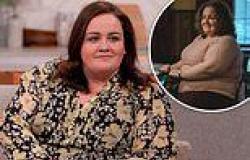Racked by insomnia, stiff joints, anxiety and energy levels so low it can make everyday chores feel insurmountable — for some women the menopause can be not just unpleasant, but utterly debilitating.
And that’s why for many menopausal women who take hormone replacement therapy (HRT), it can be a revelation.
What it does is top up levels of oestrogen and progesterone — either on their own or in combination. Falling levels of these hormones cause the symptoms which can also include palpitations, depression and memory problems.
So news this week of proposals to abolish charges for HRT — in England it costs £9.35 a prescription — should be a source of relief to many of Britain’s 3.4 million menopausal women.
But greater accessibility to HRT has never been about money. After all, women on a low income should be eligible for free prescriptions.
The problem is much more nuanced and far more profound. In short, some women may miss out because some doctors and nurses lack confidence in prescribing it — even though HRT is the most effective way to tackle symptoms of menopause. And I speak not just as a gynaecologist and former chair of the British Menopause Society, but from personal experience. Now 62, I’ve been taking it for ten years.

Racked by insomnia, stiff joints, anxiety and energy levels so low it can make everyday chores feel insurmountable — for some women the menopause can be not just unpleasant, but utterly debilitating (stock image)
While many GPs provide excellent support for their patients, judging by the emails I receive via the website I founded, Menopause Matters, there are still some women whose doctors refuse to prescribe them HRT.
Many of today’s GPs were medical students or young doctors in the early 2000s, when two of the largest studies of HRT users were undertaken. One claimed HRT could increase the risk of breast cancer, though subsequent findings revealed the original studies were flawed.
Consequently, a cohort of doctors






